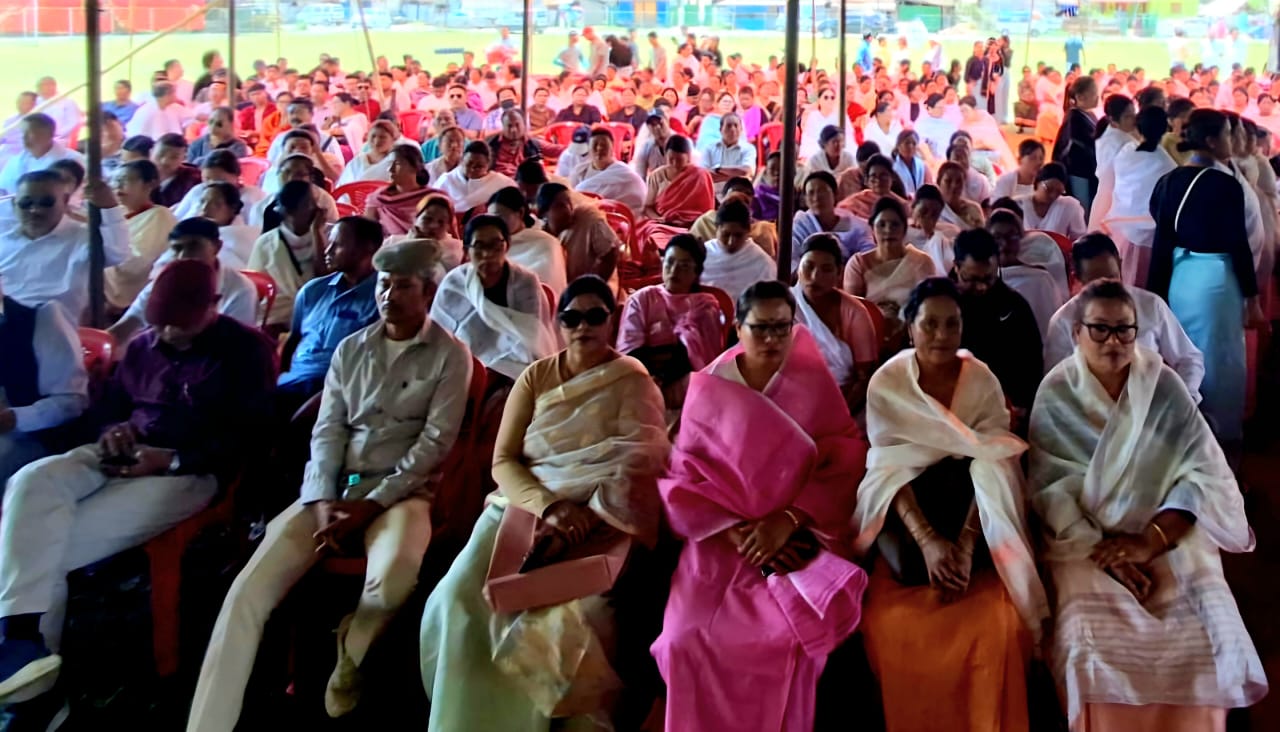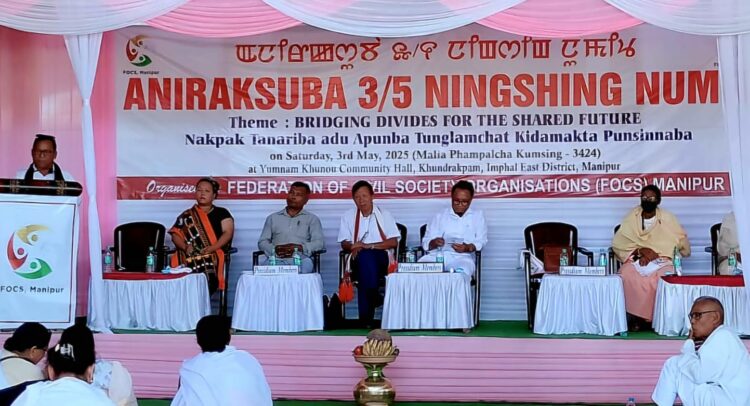Asem Bhakta
Special Correspondent North East
Theme: Building Bridges for a Shared Future Distinguished guests, respected community leaders, members of civil society, friends, and fellow citizens of Manipur,
Today, we gather not only to mark two years since that dark and painful day of May 3, but also to reflect, to heal, and to reaffirm our collective will to build bridges for a shared and peaceful future.
Two years ago, we witnessed violence that shook the very soul of our land. It was not a spontaneous eruption of hatred among common people, but a tragedy provoked by the narrow politics and divisive agendas of a few — individuals who placed personal gain and misguided ideologies above the collective good of our people. Let us be clear: these self-interested actors do not represent the will or spirit of our communities.

For centuries, we – Meiteis, Kukis, Nagas, Pangals, and others – have coexisted in this ancient land called Manipur. We have shared markets, festivals, livelihoods, and aspirations. Our coexistence is not an idea, it is a history — woven through generations. That deep bond cannot be severed by those who wish to divide us for political mileage or imagined territorial ambitions.
The violence of May 3 and the months that followed brought loss and suffering on all sides. Innocent lives, homes, and hopes were destroyed. But amid the chaos, the ordinary people of Manipur – farmers, mothers, students, daily wage earners – chose peace over conflict. They longed for education, employment, healthcare, and dignity, not gunfire, displacement, and walls of suspicion.
Let us recognize this silent majority. Let us honor them — the real heroes of Manipur — who resisted hatred and stood firm for harmony.
As we move forward, we must have the courage to speak the truth: that this conflict cannot be resolved by annihilation. The path ahead offers us only two choices — either we destroy each other completely, or we build a future where coexistence is possible. The very idea of one community eradicating another is inhuman and unacceptable. Equally untouchable and unthinkable is the territorial integrity of Manipur, a bond that binds us all.
The choice, then, is clear.
We must hold accountable those who orchestrated the violence — not for vengeance, but for justice. There can be no lasting peace without accountability. Those responsible must be identified, tried in the court of law, and prevented from further exploiting our people.
And more importantly, we must open new channels of communication between our communities. It is time we talk — not through barricades or bullets, but face to face, heart to heart. Dialogue, understanding, and reconciliation must begin not just at the government level, but at the grassroots — among neighbors, among youths, among civil society.
We need not agree on everything to live in peace. But we must agree that peace is non-negotiable. Let us reject extremism in all forms, and instead champion a vision of Manipur where our children grow up safe, united, and proud of their shared heritage.
On this solemn day, let us remember those we have lost. Let us also remember what we still have — a chance to rebuild, to reconcile, and to rise together.
The bridges we build today will define the Manipur of tomorrow.


